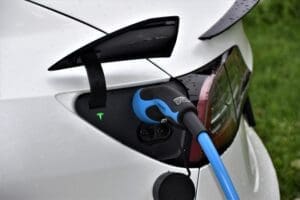Rather than a universal statewide program, Floridians are largely depending on their region’s utility company for credits and rebates, which can vary widely. Here’s what you need to know.
As electric vehicle (EV) incentive programs are subject to change, it is crucial that you research the current incentives before you buy or consult one of our tax specialists to ensure you qualify for a rebate or tax credit.
Tax Credits for Buying New EVs
The state of Florida does not offer tax credits for the purchase of a new EV, but some Florida residents may be eligible for programs through their local utility company. For example, the Kissimmee Utility Authority currently offers a rebate of $100 to customers for the purchase of a new EV, and the Orlando Utilities Commission offers a rebate of $200 to customers who purchase or lease an eligible EV.
Does Florida Have Credits for Installing Home Charging Stations?
Florida does not have a statewide program to provide incentives for installing a home charging station, but some of the state’s utility companies offer incentives. The Kissimmee Utility Authority offers rebates of $100 for the purchase and installation of a home EV charging station. The Jacksonville Electric Authority offers customers with residential Level 2 EV charging stations an incentive of up to $7 per month to encourage charging during off-peak hours. Businesses in Sarasota County are eligible for a rebate of 25 percent of the cost of EVSE purchase and installation up to $2,000.
Federal EV Tax Credit Details
It is important to note that the current status of federal and state incentives can change, and readers should check with local utility programs and official government web sites for the most accurate and up-to-date information on EV tax credits and benefits.
If you place in service a new plug-in electric vehicle (EV) or fuel cell vehicle (FCV) in 2023 or after, you may qualify for a clean vehicle tax credit.
Who Qualifies?
You may qualify for a credit up to $7,500 under Internal Revenue Code Section 30D if you buy a new, qualified plug-in EV or fuel cell electric vehicle (FCV). The Inflation Reduction Act of 2022 changed the rules for this credit for vehicles purchased from 2023 to 2032. The credit is available to individuals and their businesses.
To qualify, you must:
- Buy it for your own use, not for resale.
- Use it primarily in the U.S.
- In addition, your modified adjusted gross income (AGI) may not exceed:
- $300,000 for married couples filing jointly.
- $225,000 for heads of households
- $150,000 for all other filers
You can use your modified AGI from the year you take delivery of the vehicle or the year before, whichever is less. If your modified AGI is below the threshold in one of the two years, you can claim the credit.
The credit is nonrefundable, so you can’t get back more on the credit than you owe in taxes. You can’t apply any excess credit to future tax years. The amount of the credit depends on when you placed the vehicle in service (took delivery), regardless of purchase date.
For vehicles placed in service January 1 to April 17, 2023:
- $2,500 base amount
- Plus $417 for a vehicle with at least 7 kilowatt hours of battery capacity
- Plus $417 for each kilowatt hour of battery capacity beyond 5 kilowatt hours
- Up to $7,500 total
In general, the minimum credit will be $3,751 ($2,500 + 3 times $417), the credit amount for a vehicle with the minimum 7-kilowatt hours of battery capacity.
Vehicles placed in service April 18, 2023, and after will have to meet all of the same criteria listed above, plus meet new critical mineral and battery component requirements for a credit up to:
- $3,750 if the vehicle meets the critical minerals requirement only.
- $3,750 if the vehicle meets the battery components requirement only.
- $7,500 if the vehicle meets both.
- A vehicle that doesn’t meet either requirement will not be eligible for a credit.
What Qualifies a Vehicle?
- Have a battery capacity of at least 7 kilowatt hours.
- Have a gross vehicle weight rating of less than 14,000 pounds.
- Be made by a qualified manufacturer.
- FCVs do not need to be made by a qualified manufacturer to be eligible. See Rev. Proc. 2022-42 for more detailed guidance.
- Undergo final assembly in North America
- Meet critical mineral and battery component requirements (as of April 18, 2023).
The sale qualifies only if:
- You buy the vehicle new.
- The seller reports required information to you at the time of sale and to the IRS.
- Sellers are required to report your name and taxpayer identification number to the IRS for you to be eligible to claim the credit.
In addition, the vehicle’s manufacturer suggested retail price (MSRP) can’t exceed $80,000 for vans, sport utility vehicles, and pickup trucks. For all other vehicles, it cannot exceed $55,000.
MSRP is the retail price of the automobile suggested by the manufacturer, including manufacturer installed options, accessories and trim but excluding destination fees. It isn’t necessarily the price you pay.
For additional information, please contact one of our tax professionals at info@templetonco.com or 561-798-9988.

